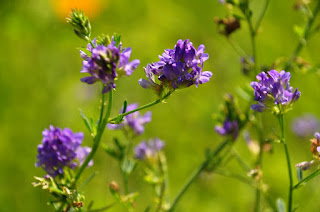Never Rake Leaves into Storm Drains or Waterways
Hopefully most people are aware of the dangers of pouring oil, pesticides and other products into our storm drains or dumping them into our rivers. Now that leaf raking season is fast approaching, remember storm drains and rivers are no place for leaves either.
Some people may think that leaves are from nature, so it
can’t hurt the environment if they washed into the storm drain or if they are
left along the river banks – right? Wrong. Many leaves will naturally fall into
the water, but we should never put the leaves that fall on our lawn in a creek,
river or stream. Excessive decaying leaves use up the water’s oxygen, harming
the animals that live in the water.
Storm drains are designed to take away water runoff. They
collect excess water from rain events and move the untreated water into waterways
such as the Shiawassee, Maple and Looking Glass Rivers. When leaves and yard waste collect in the
drain system, they block pipes, resulting in the flooding of our roads,
waterways and private property. When the storm water runoff does empty into a
waterway, the high levels of nutrients released by the yard waste is harmful to
aquatic life. In addition, any excess chemicals and fertilizers that are used
on lawns get raked up with the leaves and end up in our rivers and streams.
When leaves and other lawn waste is left on river banks,
they smother the vegetation that prevents erosion by holding the soil in place.
Once the vegetation is gone, the soil will erode into the river causing even
more environmental concerns. Also, it just doesn’t look nice to have leaves
piled along the bank, or a bare spot of eroding soil.
Leaves can be mulched by running over them with your lawn
mower. Leaves and grass clippings are great fertilizer for your lawn or they
can be raked into a compost pile for a nutrient-rich fertilizer to use in your
garden next spring. Some communities have a drop-off site that you can haul
your leaves to or have curbside pickup. If you are asked to put the leaves in
the street, wait until just before collection day to do so.
What may seem like a small thing, like keeping your lawn
waste out of our rivers and streams, adds up to a big thing when others do the
same! Do your part to protect our waterways this fall. Contact the Shiawassee
Conservation District for more information on ways to protect our water
quality.
This information is part of a larger project funded by EGLE under the NPS Control Fund and Section 319 of the federal CWA.



